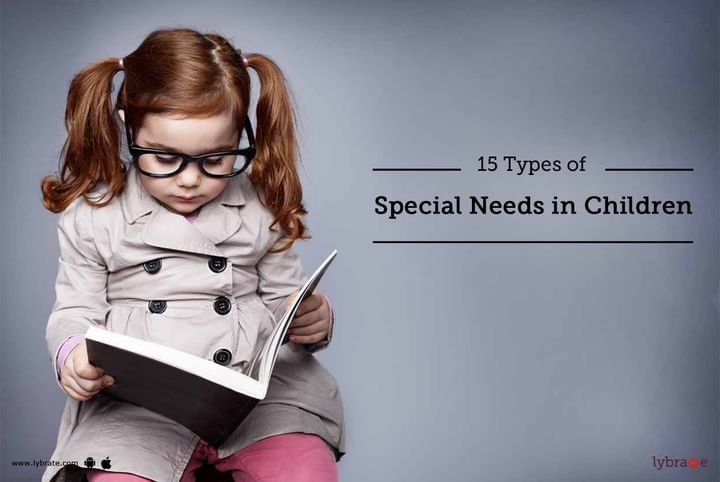15 Types of Special Needs in Children
Parenting is a lifetime job be it for a normal child or a child with special needs. Parents are teachers, guides, leaders, protectors and providers for their children. Parenting is a process of promoting and supporting the physical, emotional, social, financial and intellectual development of a child from infancy to adulthood. Every child is a gift and a blessing to their parents. On the other hand, parenting itself is one of the toughest jobs and that too for a child with special needs, it is both a blessing and challenge.
It is a very unique experience to live with a disabled child as it has a major impact on the family, siblings and extended family members. However, discovering a problem should be the initial step to start with parenting such children. Discovering a child's special needs is often a confusing and painful process for parents as sometimes learning difficulties can be multiple and difficult to pinpoint and it can be hard for parents to know whether things are normal or not.
There are various categories of disabilities that your child might fall under. For example: Specific Learning Disability (SLD), Other Health Impairment, Autism Spectrum Disorder, Emotional disturbance, Speech or language impairment, Visual impairment, including blindness, Deafness, Deaf-blindness, Orthopedic impairment, Intellectual disability, Traumatic brain injury, Multiple disabilities.
Some common indications for the development of learning disabilities which can be taken into consideration
- Difficulty with reading/writing
- Problems with math skills
- Difficulty in remembering
- Problem in paying attention
- Trouble following directions
- Difficulty with concepts related to time
- Problem in staying organized
- Impulsive behavior
- Inappropriate responses in school or social situations
- Difficulty staying on task(easily distracted)
- Difficulty finding the right way to say something
- Immature way of speaking
- Inconsistent school performance
- Difficulty listening well
- Problem in understanding words or concept
But the above mentioned signs are not enough to determine that a person has a learning disability. A professional assessment is also necessary to diagnose a learning disability because every disability has its own signs and unless they persist over time cannot be considered as a 'disability'. If you wish to discuss about any specific problem, you can consult a psychologist.



+1.svg)
